There is an archaic belief that caregivers must punish children or risk failing to discipline them. Parents teach misconception to their sons and daughters and thereby perpetuate it from one generation to the next. It is entirely possible to discipline children using non-punitive methodology.
My Early Childhood Education studies included the theories of developmental Psychologist Piaget. In Piaget’s philosophy mistakes are the natural function of child and human development.

Introduction to Discipline Without Punishment
This article introduces the developmental psychologist Piaget and discipline methods for parents and educators.
My Early Childhood Education studies included the theories of developmental Psychologist Piaget. In Piaget’s philosophy mistakes are a natural function of child and human development. By making mistakes, children instigate ongoing opportunities to learn through the cognitive processing of the consequences that follow.* Punitive measures are counterproductive to this process and do not directly or developmentally address a child’s behavior. According to Piaget, children learn by trial and error. Parents and educators can apply this principle to their discipline methods as opposed to inhibiting the child’s natural process of making mistakes and learning from them. Punishing the very mistakes that offer opportunities for learning is detrimental to the child’s cognitive process. In non-punitive discipline the child's cognitive process is fully engage.
Punitive methodology only focuses on providing a negative experience, not directly related to the mistake the child has made. This negative experience, based on associative patterning, lacks developmental appropriateness because the child is not able to cognitively connect the action with the punishment. The child is only able to feel the negative experience of the punishment. Children experience fear and intimidation instead of learning self-control and personal responsibility.Sadly this negativity, based on fear and intimidation, is imposed by the adults they need to trust.
So how does the person with the difficult job of parenting avoid punitive measures with their children without being permissive?
Natural and Logical Consequences:
Natural and logical consequences are the first step to teaching children self-control and personal responsibility by demonstrating
cause and effect. Natural and logical consequences provide children with a connection between their mistakes and the effect of their mistakes. Natural consequences are how the physical world responds to our actions. For example, if you loosen your grasp on a fork, the fork will fall to the floor. We are no longer holding the fork. If I drop a ceramic bowl and it breaks, the break is the natural consequence of impact.
Logical consequences are based on a directly related response imposed by the caregiver. For example, if your child goes outside in the cold and snow without a winter coat, the natural consequence is that the child will feel the cold of the air. If the child continues to go outside without a winter coat the next natural consequence is that they suffer the symptoms of a cold. The parent in an effort to avoid the natural consequence of catching a cold will implement a logical consequence of not allowing their child to go outside in the snow without a coat.
In punitive discipline there is a negative consequence that has no direct relationship with the action we are aiming correct or prevent.
As an example, I will describe a very personal anecdote. My grandmother on my father's side, who championed spanking children with a vengeance, would tell this story as a way to advocate spanking. Incidentally, it also shows how negative patterns of discipline can pass from one generation to the other. The damage that we to my father, by my grandmother's abusive punitive methods showed in my father's parenting and in his dysfunctional coping. According to our grandmother as a toddler my elder sister, through her plate of scrambled eggs from her high chair hair to the floor. our grandmothers view, no accounting for age or stage of development. My sister knocked the plate of eggs on the floor, a very typical infant, and toddler behavior. From a developmental perspective, this behavior is the cognitive function in children that explore cause and effect, consequence and gravity. My grandmother bragged that my father spanked my sister In Piaget’s philosophy mistakes are a natural function of child and human development. By making mistakes, children instigate ongoing opportunities to learn through adult guided cognitive processing. Punitive measures are counterproductive to this process and do not directly or developmentally address a child’s behavior. According to Piaget, children learn by trial and error. Parents and educators can apply this principle in discipline as opposed to inhibiting this natural process by punishing the very mistakes that offer opportunities for learning. In non-punitive discipline, the child's cognitive process is fully engaged. Punitive methods focus on a negative experience often unrelated to the mistake the child has made. This negative experience, based on associative patterning, that an adult can process lacks developmental appropriateness for the early childhood cognition of. Punitive discipline inhibits the learning opportunities that mistakes offer through threat, fear, and intimidation. Not only is this ineffective inhibitor to the child's cognitive process but also illogical and teaches children fear and intimidation instead of trust, self-control, and personal accountability. So how does the person with the difficult job of parenting avoid punitive measures with their children without being permissive for being naughty? While my sister likely felt the negative consequence of an invasive and unpleasant experience, she was given no opportunity for cognitive reasoning regarding her action. My grandmother would never have given her credit for having any cognitive function.
In the positive parenting paradigm fully acknowledges that a toddler, no longer infantile, with a command over the functions of their grasp and ability to hurl objects is testing boundaries, experimenting with their abilities and objects and testing gravity. Infants and toddlers are not born with the ability to anticipate cause and effect; children are also not born with an innate sense of why it is inappropriate to throw breakfast on the floor. In this scenario, my sister suffered unnecessary punishment as due to her stage of development. Babies and toddlers are beginning to learn through cause and affect the natural and logical consequences of their actions. With corresponding language and guidance from caregiving adults, a young child’s actions and the resulting circumstances can become a cognitive process where they can set the stage for learning appropriate behavior.
It is important to know that this is an ongoing process as a child grows. The above mentioned, plate of eggs landing on the floor out of my sister’s reach was the natural consequence of my sister’s actions. In this scenario the very young child, with a new ability to manipulate the world around them, there is an opportunity to experience a natural consequence. The logical consequence, based on the caregiver’s discretion, is that the child has to wait for a fresh plate of food. The caregiver can also decide that there will be no more food or to prepare a second plate only. If the caregiver decides to prepare a fresh plate of food, it is vital that language is attached. "Your eggs fell on the floor where you can't get to them. I can offer you some juice now. How about we drink our juice?" If the child also flings her juice on the floor then we have a repeat of a natural consequence-no more juice. The juice is now on the floor and not accessible to the child. Here the child begins to process the cause and effect through the natural consequence of their action. By discretion of the parent, there will be a logical consequence to the tippy- cup landing on the floor, that the caregiver can attach language to "You just threw your eggs and juice on the floor; this tells me that you have finished eating your breakfast." The parent or grandparent thus has a built-in opportunity to talk the child through the logical consequence "If you throw your breakfast on the floor you are telling me you have finished eating." The child now can process natural and logical consequences as well as the language associated with it.
Logical consequences often emerge out of natural consequence. By allowing an infant, even if it is normal behavior, to drop ten spoons is impractical and does not allow her to begin to learn naturally to logical consequences of her actions. It is extremely unpractical for a parent to over indulge natural consequence. The childcare center and the home need to functionally operate and can do so through implementing logical consequences. It is not necessary to punish a child in response to their developmentally appropriate behavior for the caregiver to take the adult supervising role of running the household in a functional way. This adult role is giving language to the natural consequence, as well as implementing and giving language to the logical consequence. "You dropped your bottle and now it is on the floor of the car where you can’t reach it. (natural) Mommy is driving, so I can’t help you with your bottle.” (logical) In this cognitive process, the child is not only being guided by the language but also learning language through the modeling parent. The glue that holds this together is taking the child through the consequences, mentioned above and worth repeating.
Logical and natural consequences provide a solid foundation for non-punitive discipline. This basis of raising children with non-punitive discipline can begin as early as infancy.
You might also like
Piaget vs VygotskyThis page aims to Compare and Contrast The Theories of Piaget and Vygotsky on...
Children Learn Through PlayPlay Is How Children Explore the World and Find Their Place in It -- And Lear...
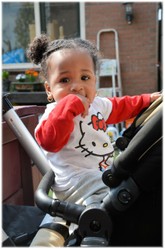

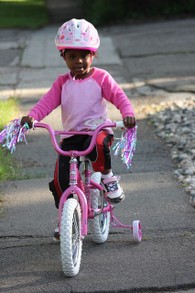

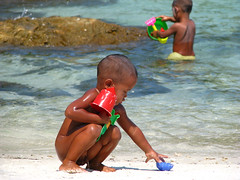



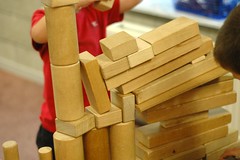




 From Babies to Baby Boomers, the Added Impact of Disposable DIaperson 02/05/2016
From Babies to Baby Boomers, the Added Impact of Disposable DIaperson 02/05/2016
 Managing and Preventing Hypertentionon 02/11/2016
Managing and Preventing Hypertentionon 02/11/2016
 The PCS Reality Of Military Service : My Duffle Bag, My Family, My Soulon 02/02/2016
The PCS Reality Of Military Service : My Duffle Bag, My Family, My Soulon 02/02/2016
 Things to Consider Before Keeping a Rabbit As a Peton 01/24/2016
Things to Consider Before Keeping a Rabbit As a Peton 01/24/2016

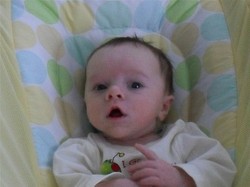
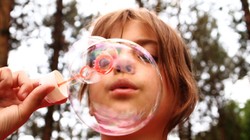
Comments